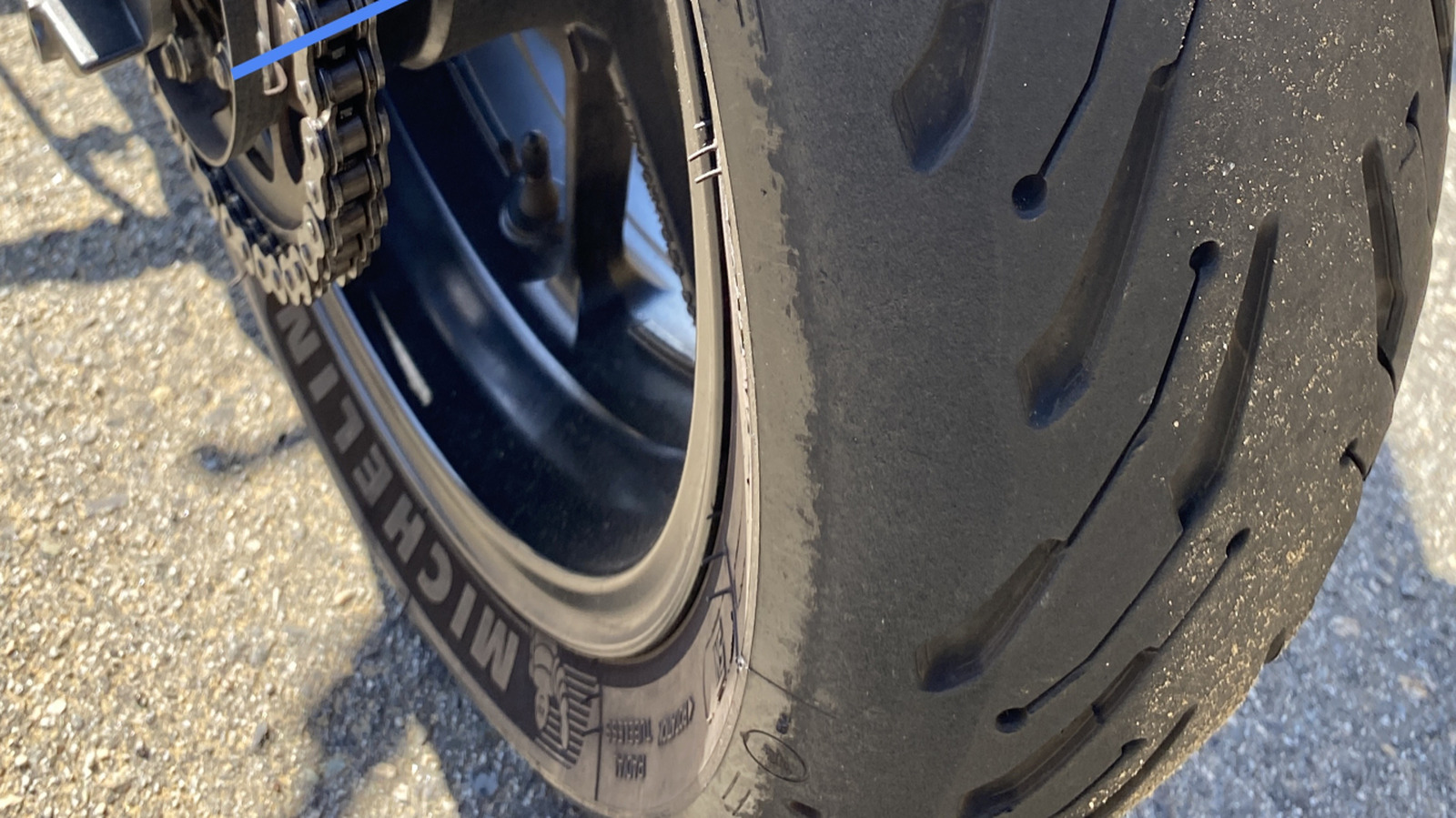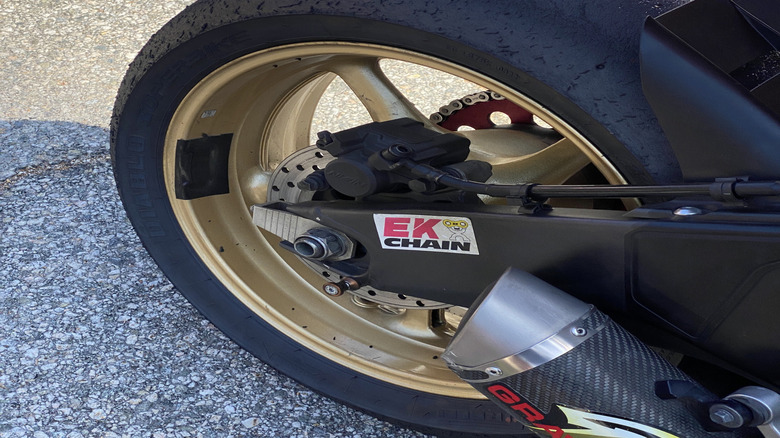If you’re new to the world of motorcycles, you might hear the term “chicken strips” flying around at local meets. Maybe you’re up in the canyons and you stumble upon another group of riders who start making chicken-strip jokes. You don’t want to seem uneducated, so you don’t ask. Instead, you laugh, think about the delicious fried treat you know and love, then let it go. If curiosity gets the better of you, however, we can help with your query.
Advertisement
Unfortunately, motorcycle chicken strips have nothing to do with poultry or the culinary arts — there’s no dipping sauce here. As it relates to motorcycles, a chicken strip is the section of your tire that has gone unused. The somewhat-derogatory term is a jab aimed at motorcycle riders who aren’t leaning their bikes way over in a corner, maximizing the bike’s performance. It suggests that you’re too scared to lean the bike to its maximum angle. The tire pictured here has some lean angle left before the edge of the tire, so the small area that looks smooth and untouched would be referred to as the chicken strip. The logical evolution of this inference then, is that the narrower the chicken strip, the more skilled the rider.
Advertisement
Getting rid of chicken strips (or not caring)
To clarify, I’m a firm believer that chicken strips are fine, particularly amongst new riders. Not everyone needs to be exploring the limits of grip and handling on every ride, especially not on public roads. But, if you want to use all your tire’s potential, you’ll need to dedicate a fair portion of your riding to maneuvering through corners.
Advertisement
Unlike most car tires, which have a flat contact patch across the ground, motorcycle tires are curved. If you were to only ever ride your motorcycle in a straight line, the center of the tire would be the only part to wear down over time. Leaning over to ride through a corner though, that wears down the outside edges of the tire. If you’re skilled enough to push your motorcycle to its limits and use all of the available tire surface, you’ll eliminate these “chicken strips” over time.
The tire pictured here has been thoroughly used from edge to edge — so there’s no chicken strip to be seen. But getting to the level of skill required to cook a tire this thoroughly takes a lot of time and dedication, and even after years of riding, it still may never be possible for some riders. So, before focusing on the outward signs of riding success, master the basics first. Gear up, stay on top of maintenance, and stay safe. Take a motorcycle safety course – then, once you’re comfortable, graduate to a class or classes that push your limits a bit.
Advertisement

